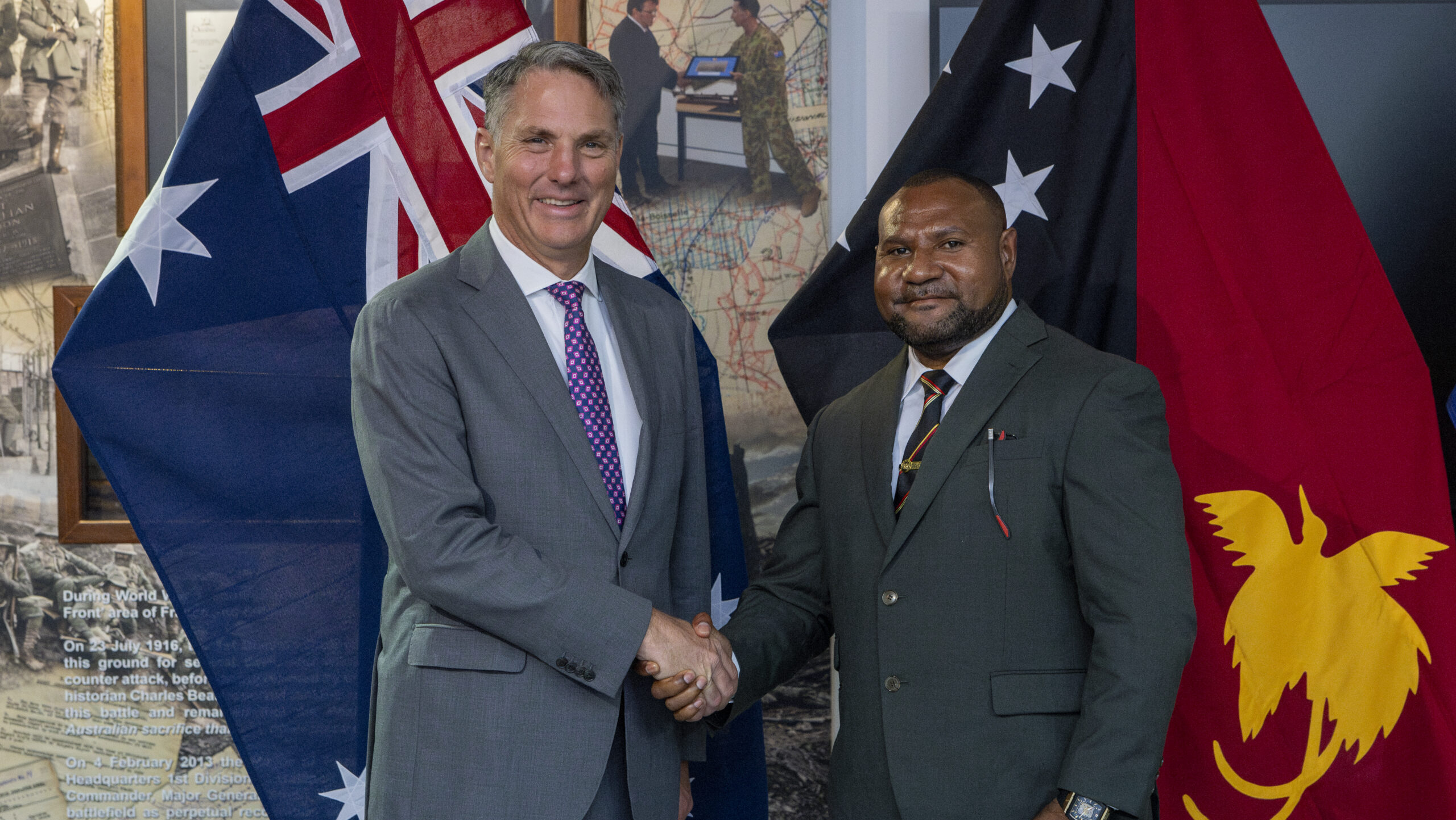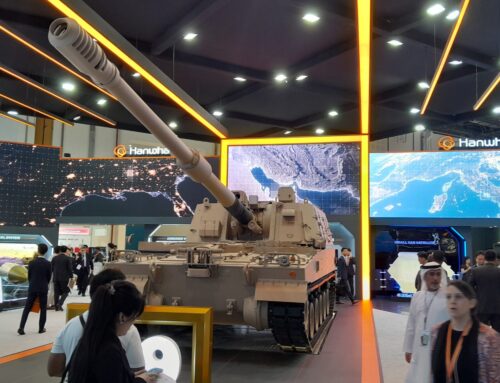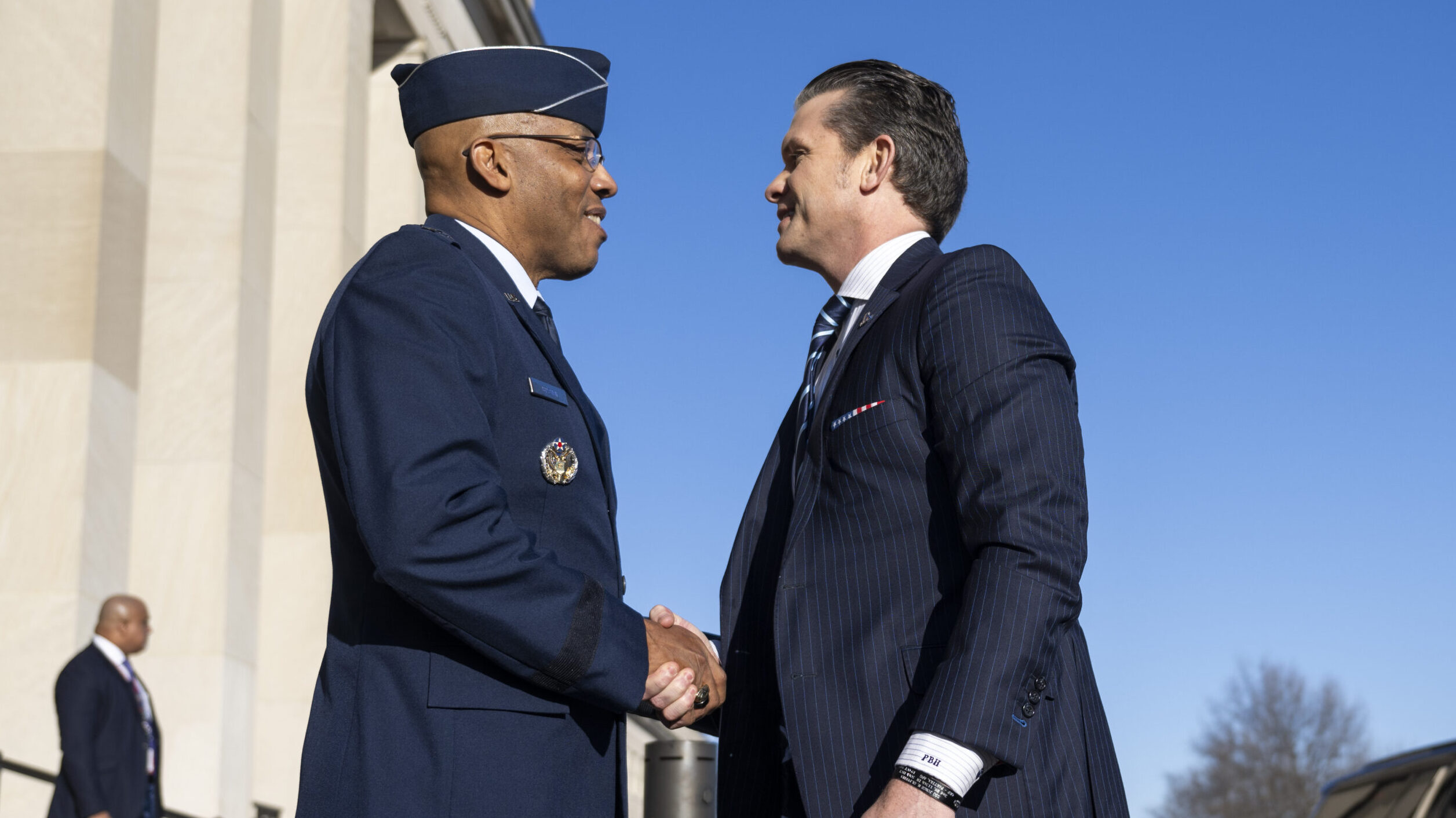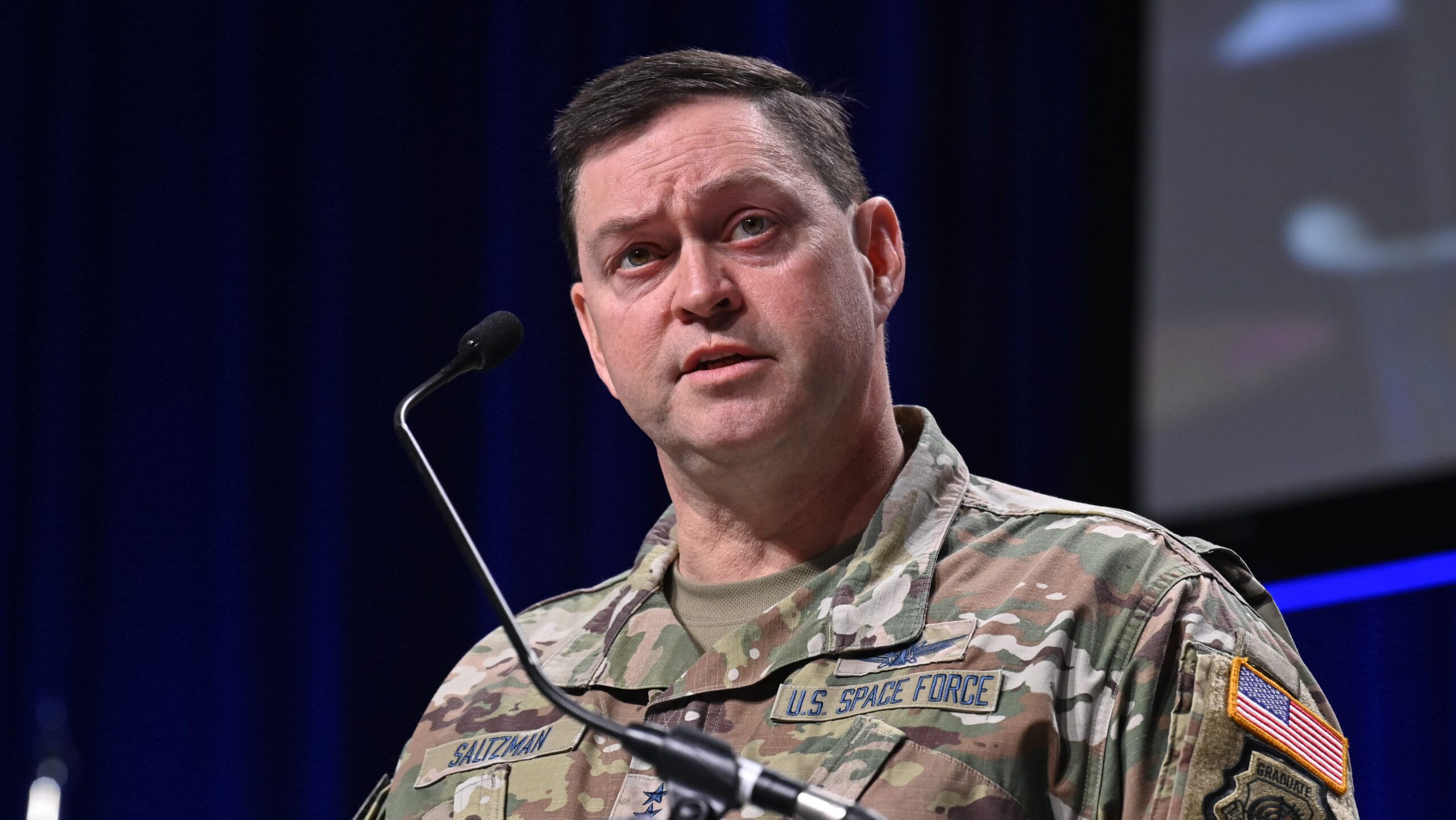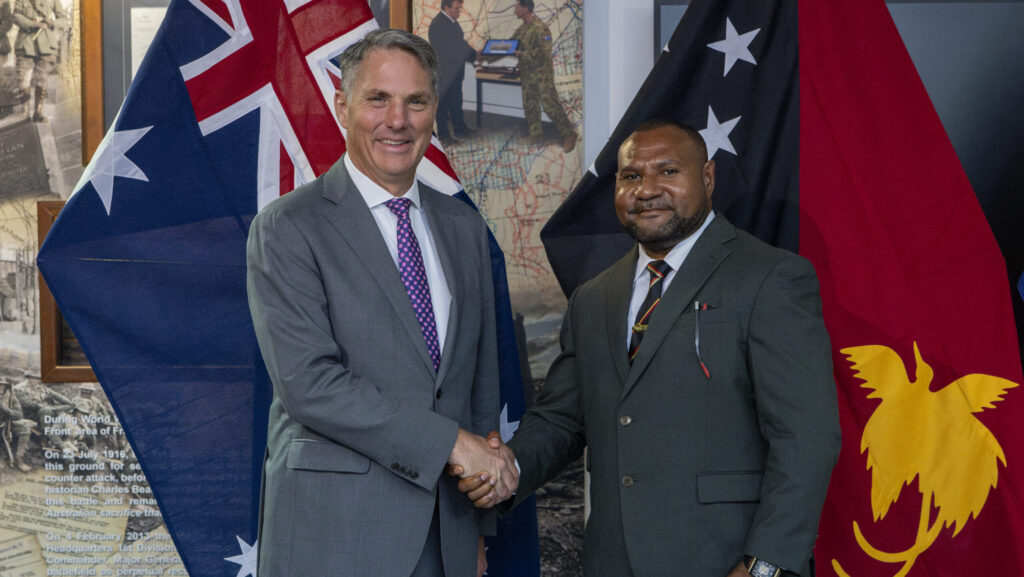
Australian Defense Minister Richard Marles with Papua New Guinea Defense Minister, Billy Joseph, in Brisbane on Feb. 20, 2025 where they announced the two countries hope to draft and sign a defense treaty. (ADF)
TOKYO — A half-century after gaining independence from Australia, the Pacific island state of Papua New Guinea (PNG) and its giant neighbor are negotiating what the two sides hope will become a defense treaty, elevating their security relationship at a tense time in the region.
“This will be a treaty with ambition. It will be the most significant defense agreement between our two countries since Papua New Guinean independence,” Australian Defense Minister Richard Marles told reporters in Brisbane today.
It will be “really fitting” if this country signs a defense treaty with Australia, “because we got independence from Australia, and, at the same time, we are very close to each other,” PNG’s defense minister, Billy Joseph, said at the press conference.
Australia created the first Papuan defense force in 1943 to help drive the Japanese out of the Pacific islands during the Second World War and now regularly trains with their forces.
Marles said the pending agreement would be “a pathway of increasing integration and increasing interoperability” with its neighbor just three kilometers to the north.
The two countries came close to signing a treaty in December last year but it foundered due to criticism from some PNG politicians.
“The Bilateral Security Agreement that came into effect last December was originally intended to be a treaty-level document, but the PNG side pushed back on that because of perceived legal hurdles with respect to the PNG Constitution,” noted Mihai Sora, a Pacific Islands expert at Sydney’s Lowy Institute, international think tank.
The treaty is likely to focus on the “traditional and non-traditional security cooperation where Australia is already a key partner for PNG: military, police, cyber, climate, and so on,” Sora said. But there will probably be more, if not quite a NATO-style pledge that all will come to the aid of any state attacked (Article 5), he said.
Sora expected it to likely be an exclusionary pact, one focused on PNG not entering a defense or security agreement with a country, like, say, China. Australia has already forged such agreements with the tiny island states of Nauru and Tuvalu. They allow Australia to veto agreements the islands might try to make with any other country.
Australia isn’t alone in its focus on PNG.
The United States signed an agreement with PNG in May last year. Perhaps the biggest benefit of the deal in the long run for the United States is that it gives US forces access to the joint Australian-PNG facility on Manus Island, where the US built facilities during World War II. Australia is spending at least $175 million AUD ($112 million US) to improve the port. That signing was followed by the first visit to the island state by a US defense secretary, Lloyd Austin.
But there are questions about whether these bilateral agreements are the best approach to take with the Pacific Islands.
“Australian governments have been quick to claim these bilateral arrangements as diplomatic wins. But they are the diplomatic equivalent of a Mars Bar: the government gets the sugar-rush of making an announcement, but there is no guarantee that these arrangements will deliver long-term outcomes,” argued Joanne Wallis, a professor in Pacific studies at the University of Adelaide, and her colleague, Salote Tagivakatini, a former Fijian diplomat, in a recent paper for the Australian Institute of International Affairs.
They point to the decision by the minuscule Cook Islands, whose residents are citizens of New Zealand, to sign a “comprehensive strategic partnership” with China as proof this bilateral approach might not be as effective as hoped. The Cook Islands leadership, which is supposed to consult with New Zealand on security and defense issues, failed to do so recently when deciding to sign a strategic pact with China, according to the New Zealand news outlet RNZ.
Wallis and Tagivakatini argue the unique culture of the Pacific islands, where governments regard themselves as a “family” and try to work together on the basis of consensus, runs counter to the spirit of what they call “transactional” bilateral agreements.
The authors say this approach “risks undermining the Pacific Islands Forum and other regional agencies. Pacific leaders have made clear their desire for Pacific-led regionalism.”
But John Blaxland, an Indo-Pacific expert at the Australian National University, said he believes that “great power competition is more acute today than it has been for generations.”
Papua New Guinea is now as important to Australia as it has ever been, and he stressed competition for access and influence has intensified in recent months and years. “Consolidating and formalizing a defense treaty makes sense in view of the shifting security and defense dynamics,” Blaxland told Breaking Defense.
This treaty, should it be signed, “can’t be taken for granted,” he wrote in an email. “This is a time of what can be described as unrestricted competition in the legal, media, psychological and economic domains. Australia cannot afford to rest on its laurels about maintaining deep, trusted and effectively collaborative relations between Australia and PNG.”


